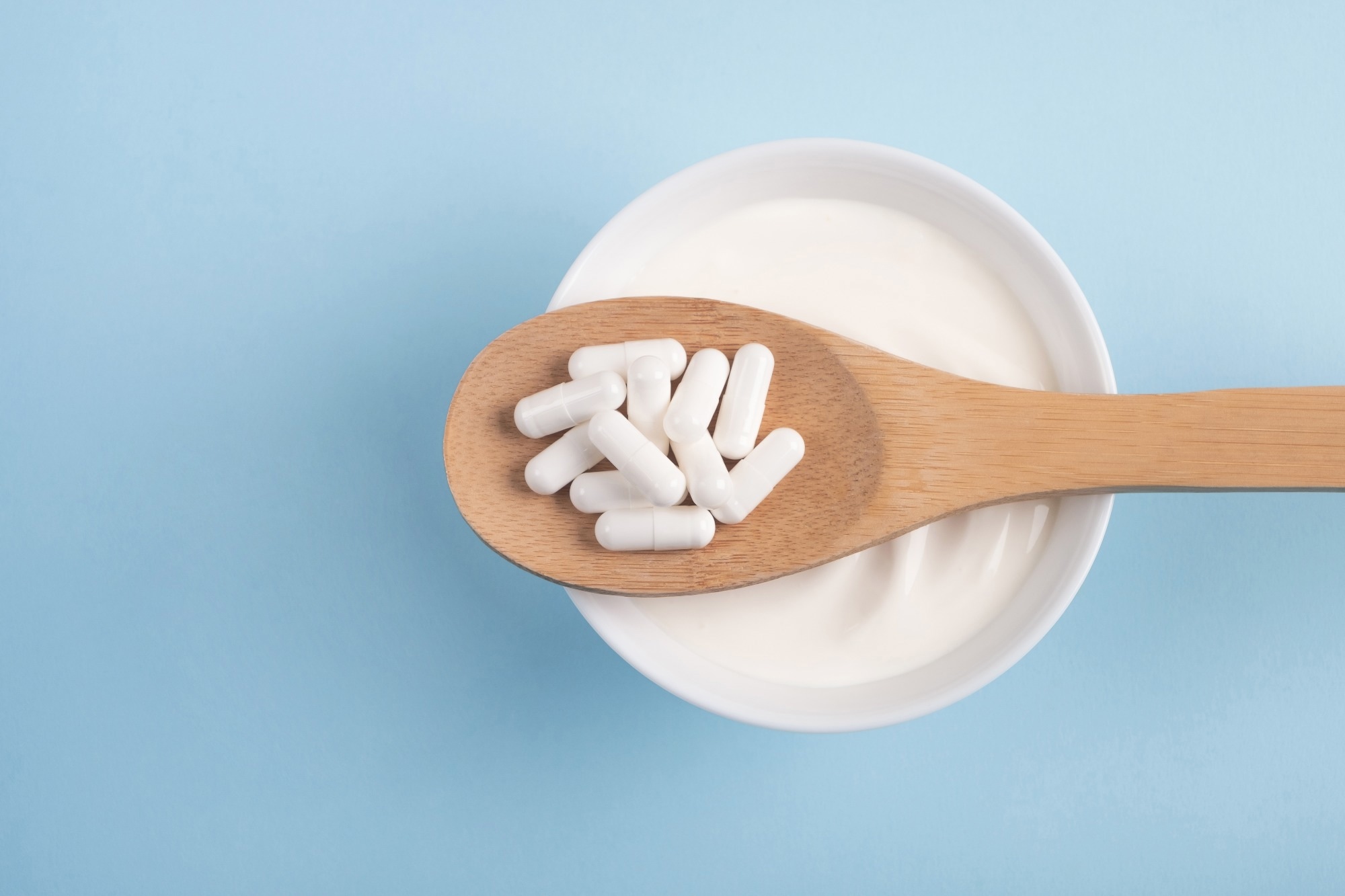What are prebiotics?
Impact of the COVID-19 pandemic
Future outlook
References
Further Reading
Prebiotics belong to a group of nutrients that are degraded by gut microbiota, where they work to feed the intestinal microflora. The degraded products of these compounds include short-chain fatty acids, which are released into the blood and the circulatory system, which can influence both the gastrointestinal tract and distant organs.
 Image Credit: HelenaNechaeva/Shutterstock.com
Image Credit: HelenaNechaeva/Shutterstock.com
What are prebiotics?
Glenn Gibson and Marcel Roberfroid introduced the concept of prebiotics in 1995. They defined it as a non-digestible ingredient in the food that can beneficially affect the host by selectively stimulating the growth or activity of limited bacteria found within the colon, subsequently improving human health.
The criteria for this category of nutrients, which is required for a compound to be classified as a prebiotic, includes: (i) being resistant to the acidic pH of the stomach, which should not be hydrolyzed through mammalian enzymes or be absorbed in the gastrointestinal tract, (ii) fermented by intestinal microbiota, and (iii) stimulates the growth or activity of the intestinal bacteria, which improves the health of the host.
Examples of two significant groups of prebiotics comprise fructo-oligosaccharides and galacto-oligosaccharides. However, while these can have positive health effects, they are naturally found in low quantities within food. This has increased the fascination with prebiotics that can aid in increasing human health, either alone or in combination with probiotics.
Impact of the COVID-19 pandemic
The COVID-19 pandemic, which was declared due to the coronavirus (SARS-CoV-2), that emerged in December 2019, from China, has impacted human health worldwide. Globally, this virus caused infections in approximately 9.2 million people, leading to high mortality rates.
With heavy research into potential treatments and vaccines that have been developed, the public’s awareness of aseptic conditions and cleanliness has increased to prevent the transmission of bacteria and viruses. The pandemic has also increased the public’s awareness of human health as a whole, which has raised the awareness of nutrient groups such as prebiotics.
The gut is a significant part of the immune system. An imbalance in this area can cause vulnerability in the host, enabling the individual to become more susceptible to pathogens invading the body. The severity of the COVID-19 infection has been linked to the level of healthiness of gut bacteria. This can also impact any complications after the infection has passed.
This interesting influence has led to a potential wave of holistic and homeopathic medicine that works with vaccines and potential treatments to increase the immune system's strength.
Prebiotics can boost ‘good’ gut bacteria, which can also influence other factors, such as sleep and dealing with stress. This can be significant as acute stress can disrupt the gut microbiome and weaken the immune system, making the host vulnerable to foreign pathogen invasions, such as the coronavirus.
Increasing the immune system has become a major goal for many populations after the COVID-19 pandemic to prevent further contractions of the infection, or to decrease its effects, especially since the virus has been mutating to produce different variants.
The increased intake of prebiotics, which are dietary fibers that cannot be digested and are usually found in foods rich in fiber, such as fruits, vegetables, and whole grains, has increased the defense against pathogens. This has been found to be beneficial as some gut bacteria have the ability to communicate with cells and promote beneficial interactions for the immune system.
Additionally, the use of probiotics, which are live microorganisms that work to restore and improve the gut flora, can also be taken with prebiotics to improve the gastrointestinal tract further. By maintaining a healthy gut ecosystem, researchers have found the impact of the COVID-19 infection to be less severe.
What Are Prebiotics? | GutDr Mini-Explainer
Future outlook
The COVID-19 infection, which has brought devastation to many populations globally, has led to a higher awareness of the strength of an immune system. This has subsequently also increased the desire to actively maintain and elevate the immune system through fitness and homeopathic and holistic strategies.
Populations have become more aware of how to take care of their body and how to decrease the transmission of pathogens. Additionally, in attempting to increase the immune system, the importance of gut health has also become highlighted.
The use of prebiotics, either through food or via supplements, has become a method of increasing the health of the gut microbiome, and this has been shown to decrease both the severity of the COVID-19 infection and the recovery process.
This interesting factor has led to research into how to improve the immune system’s defenses against pathogens directly through the bacteria within the gut, as this may improve the defences of the population as a whole against novel variants of the coronavirus.
References
- Davani-Davari D, Negahdaripour M, Karimzadeh I et al. Prebiotics: Definition, Types, Sources, Mechanisms, and Clinical Applications. Foods. 2019;8(3):92. doi:10.3390/foods8030092
- Olaimat A, Aolymat I, Al-Holy M et al. The potential application of probiotics and prebiotics for the prevention and treatment of COVID-19. NPJ Sci Food. 2020;4(1). doi:10.1038/s41538-020-00078-9
- Hu J, Zhang L, Lin W, Tang W, Chan F, Ng S. Review article: Probiotics, prebiotics and dietary approaches during COVID-19 pandemic. Trends in Food Science & Technology. 2021;108:187-196. doi:10.1016/j.tifs.2020.12.009
Further Reading
Last Updated: Aug 28, 2023